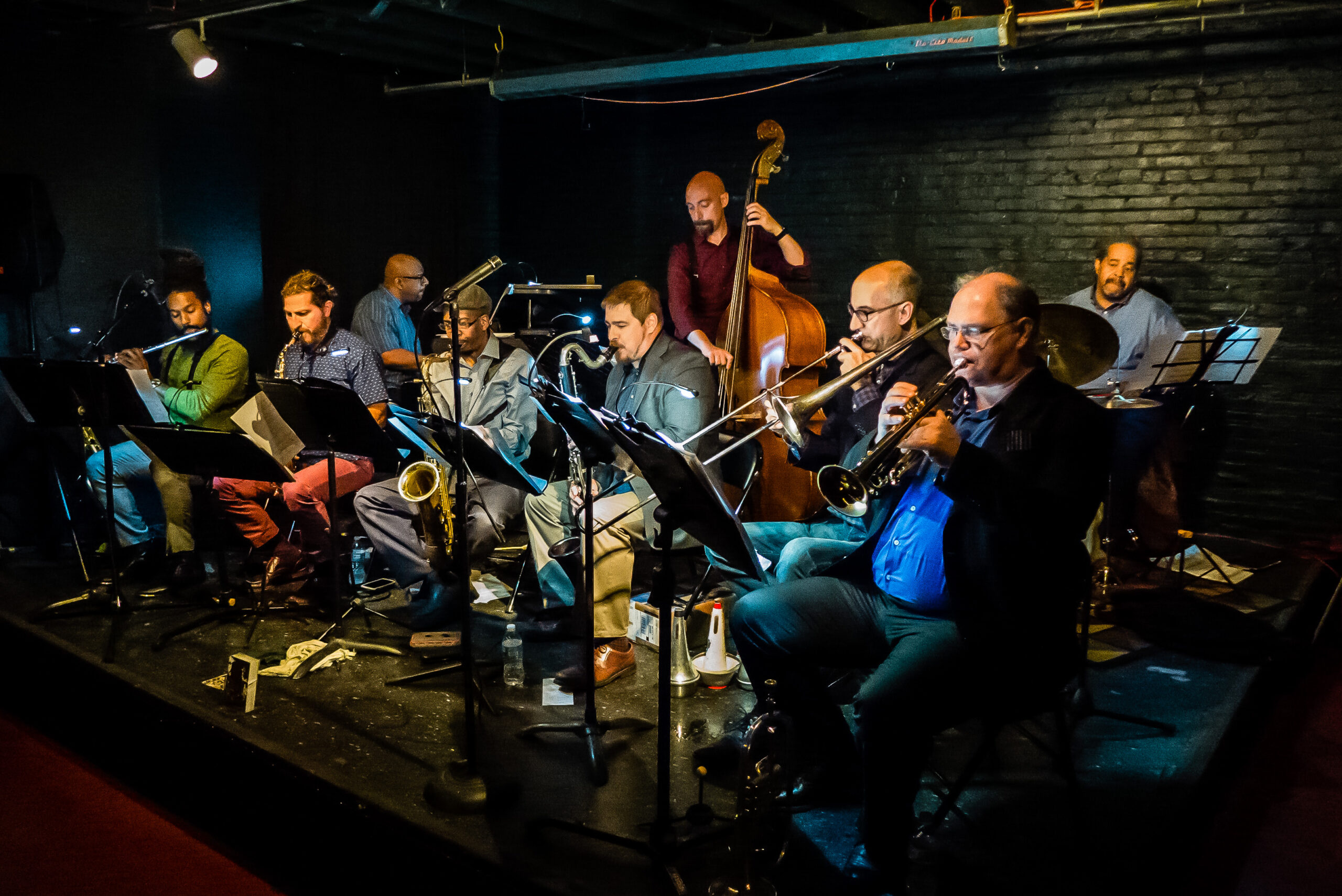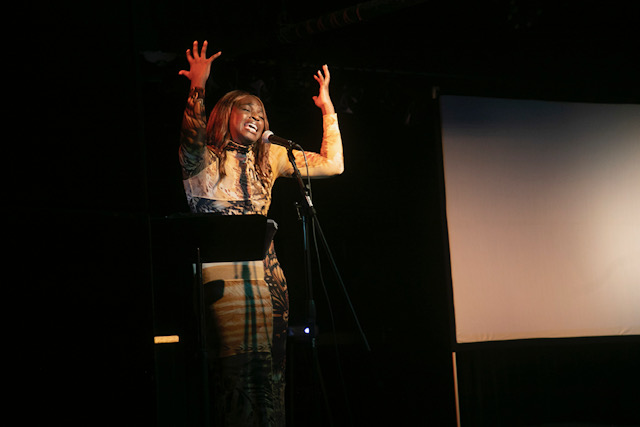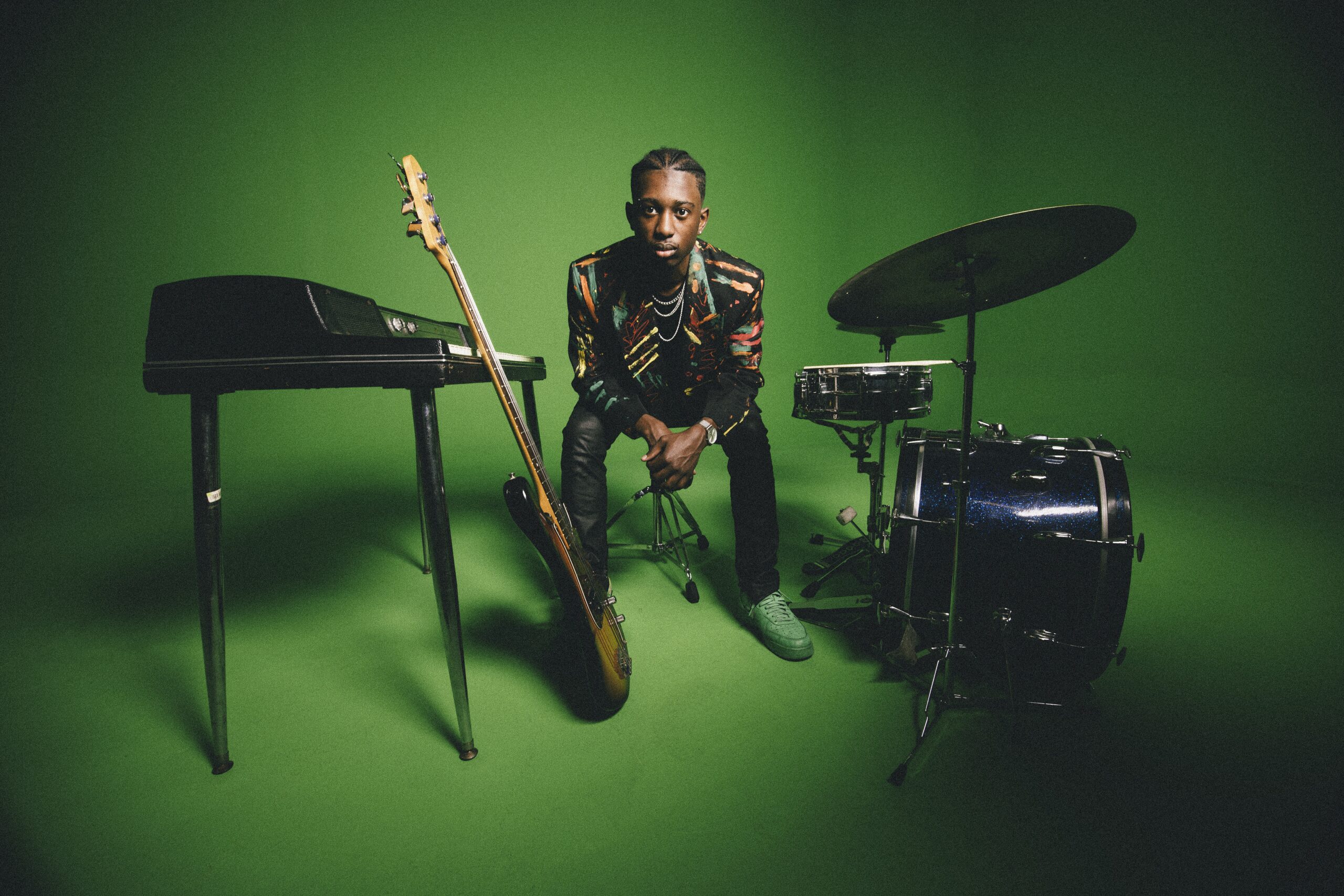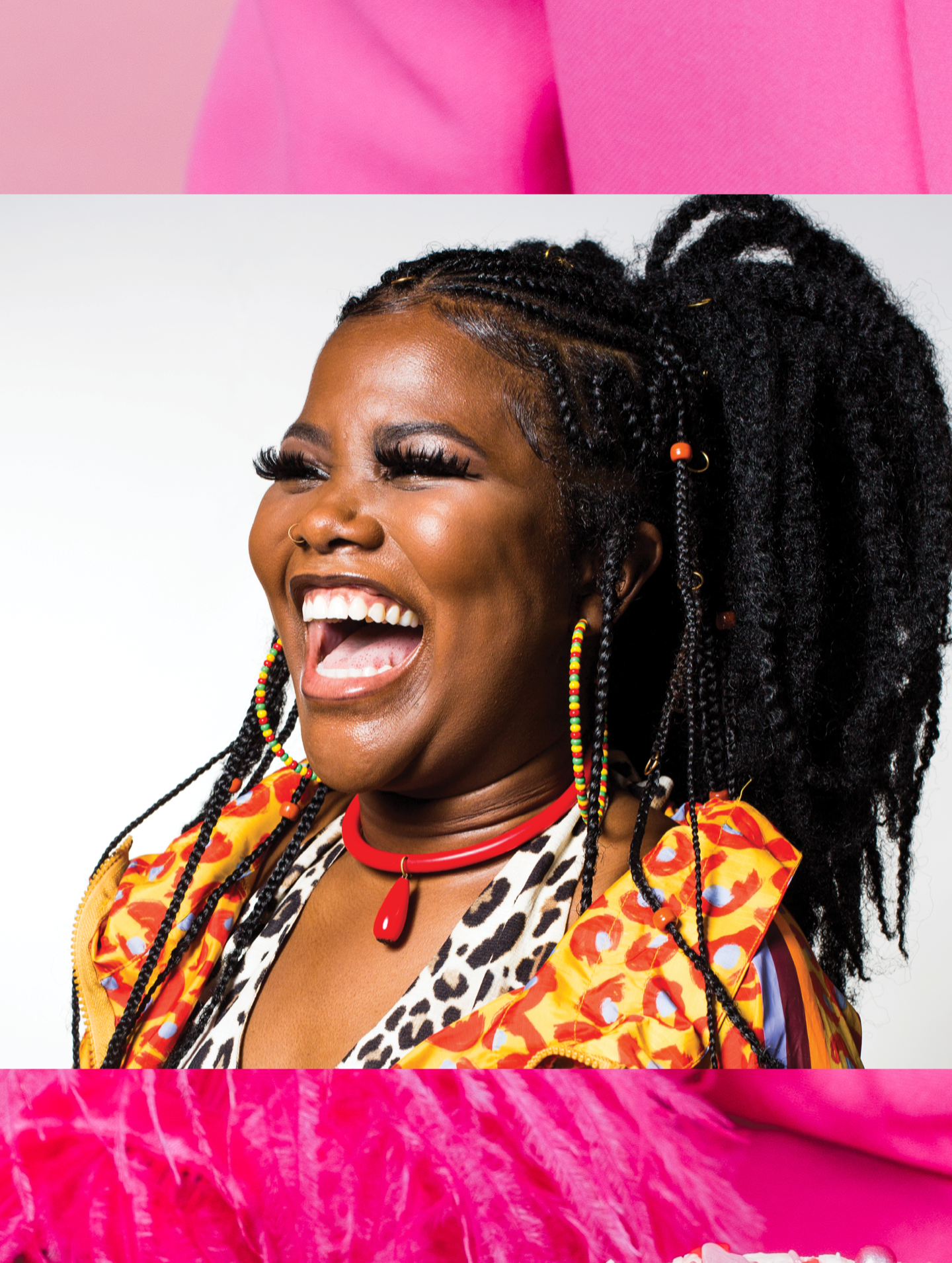A rare live performance by the Todd Marcus Jazz Orchestra, a nine-piece ensemble of six horns, piano, bass, and drums led by Baltimore bass clarinetist and composer Todd Marcus, one of the few jazz artists worldwide to focus primarily on the bass clarinet.
The band features lush and intricate original compositions that often feature influences of Middle Eastern music reflecting Marcus’ Egyptian-American heritage. Started in 2003, the ensemble includes musicians from Baltimore, New York, Knoxville, St. Louis, and Lansing. Albums include the 2006 debut In Pursuit of the 9th Man, 2015’s portrayal of Egypt’s Arab Spring revolution called Blues for Tahrir, and 2022’s In the Valley that offers a portrait of modern and ancient Egypt.
“My adult life has really been about being a part of and serving my community by day and cultivating my music by night,” Marcus shares. “I think I’ve always felt upset by the injustice of inequities in the world and so being a part of my community has allowed me to specifically deal with ongoing issues that stem from systemic racism and poverty. And at the same time, my music has allowed me to try to create some beauty that hopefully unites people across all races through the power of music.”
About the Artist
Baltimore bass clarinetist, composer, and arranger Todd Marcus is one of the few jazz artists worldwide to focus exclusively on the bass clarinet as a solo instrument. While the bass clarinet in jazz typically lends itself toward avant-garde and free-music styles, Marcus’s playing presents the instrument with a modern, straight-ahead jazz approach. His music swings hard with both fiery and introspective intensity but also maintains a strong lyrical sensibility.
Marcus has presented music for 15 years and along the way received accolades including a Jazz Hero Award from the Jazz Journalists Association in 2017, Maryland’s $25,000 Baker prize in 2014, rising star nominations by Downbeat in its annual critics poll since 2013, an NPR pick for one of the top 10 jazz albums of 2012, and a JazzTimes pick for one of the top 40 albums of 2015.
Born and raised in the northern New Jersey suburbs of New York City, Marcus, who is half-Egyptian, began music at age six with early piano lessons. He picked up clarinet at age 10, first playing band then classical music repertoire. While in high school, an English teacher who also played New Orleans style jazz piano would introduce Marcus to jazz. But upon trying to join the school’s jazz band, Marcus was told saxophones, not clarinets, were the reed instruments allowed in the band, and he was turned away.
In 1994 Marcus moved to Baltimore, MD to study political science at Loyola University and again attempted to join the school’s big band. This time Marcus was allowed to play and embraced the opportunity. With this first exposure to modern jazz along with a friend’s borrowed jazz records of artists like Oscar Peterson, Stan Getz, Charlie Parker, Miles Davis, and John Coltrane, Marcus began to further explore the music by learning improvisation from records and teaching himself theory and harmony. “I started exploring and realized I would have to figure out how to understand theory and harmony. So I’d just mentally drill myself by thinking – Ok, what is the minor 7th of an E dominant chord? – just exercises like that. And then of course, I learned a lot by just sitting at the piano and plucking away till I could play chord progressions.”
While at Loyola, Marcus also began volunteering at a local chapter of Habitat for Humanity in West Baltimore’s Sandtown-Winchester community. He soon began to build relationships with community members including a life-long resident and pastor, Rev. C.W. Harris, who mentored him about the African-American community’s rich legacy of the arts and jazz, segregation challenges, and battles to overcome decades of poverty resulting from destruction by 1960’s riots, flight by black professionals, and an influx of drugs. Harris’ mentoring nurtured Marcus’s interest in Civil Rights era history, its deep connection with the jazz music of that time, and Marcus’s feelings of the need for greater racial reconciliation in America. With a resulting belief in a need to be engaged in community based revitalization, Marcus left college and in 1997 moved into the neighborhood, doing community work by day and pursuing his ongoing study of jazz at night.
1997 also marked an important move for Marcus musically, as he made the switch from clarinet to bass clarinet shortly after hearing the work of jazz legend Eric Dolphy on the instrument. “I felt it offered a lot more options than regular clarinet,” Marcus explains. “It hasn’t been easy because of challenges the bass clarinet presents on a sonic and mechanical level but I’ve worked to present the horn as an equal to saxophones in a straight-ahead playing context. With so few examples of people playing bass clarinet in modern jazz though, I think it’s ended up being an opportunity for me to chart some new territory for the instrument.”
In late 1998 Marcus returned to New Jersey to complete his college degree in urban studies with two semesters at Rutgers University. While there however, he spent a majority of his time at the school’s jazz department. Though not a music major, he was accepted by audition into the department’s jazz combos getting his first experience of performing in quartets, trios, and composing.
By mid 1999 Marcus was back in Baltimore working again with Rev. Harris where together they have worked since to run Intersection of Change, a nonprofit addressing poverty-related issues in the community. These efforts have resulted in the establishment in 2000 of Martha’s Place, the organization’s recovery program for women overcoming substance abuse and homelessness; Jubilee Arts, a program established in 2008 to offer arts classes, entrepreneurship, and community beautification for children and adults; and Strength to Love II in 2016, which addresses the community’s food desert crisis and need for employment opportunities. Work to date has resulted in significant neighborhood community revitalization through the full renovation of six previously vacant and dilapidated buildings, transformation of 18 vacant lots into community green spaces and meditative gardens, creation of a dozen neighborhood murals, and conversion of 1.5-acres of vacant lots into an urban farm.
Marcus’s music career has also grown during these years, as he has charted new ground on the bass clarinet and developed as a composer and arranger with his Todd Marcus Quintet, Quartet, Trio, and Duo as well as his nonet, The Todd Marcus Jazz Orchestra. In 2006 he released his debut album In Pursuit of the 9th Man with Todd Marcus Jazz Orchestra as well as Todd Marcus Quartet’s 2012 release Inheritance. He again featured his jazz orchestra with 2015’s Blues for Tahrir and a 2018 quintet album On These Streets before the trio album Trio+ in 2019.
Though self-taught in jazz theory and composition, Marcus’s compositions draw largely on intricate but lyrical straight-ahead jazz, classical influences, and over recent years, have also increasingly explored the Middle-Eastern sounds from his Egyptian-American heritage. His work includes international performances, clinics, and radio play, and he has worked with other jazz artists such as Gary Bartz, Bennie Maupin, Don Byron, Larry Willis, Odean Pope, Gary Thomas, Joel Frahm, Tim Warfield, Ralph Peterson, Warren Wolf, Sean Jones, Xavier Davis, George Colligan, and Orrin Evans.
Marcus’s work includes regular performances in Baltimore, Washington D.C., New York, and Philadelphia, as well international performances, clinics, and radio play. He was a featured artist in 2017 Jazz Tales Festival in Egypt, 2015 Cairo Jazz Festival in Egypt, and in 2005 at the 1st World Bass Clarinet Convention in Rotterdam, Holland.
This performance is supported. by MSAC Touring Roster.




![Dylan Tribute 2025 Poster – Square – CA calendar size[73] Dylan Tribute 2025](https://creativealliance.org/wp-content/uploads/2025/01/Dylan-Tribute-2025-Poster-Square-CA-calendar-size73.jpg)

